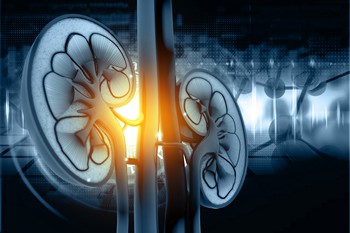Kidney Dialysis
 The Fresenius Kidney Care J. Robert Pritchard Dialysis Center at Cabell Huntington Hospital provides acute and chronic dialysis services to patients throughout the Tri-State area, addressing the physical, mental and spiritual dimensions of care for dialysis patients and their families.
The Fresenius Kidney Care J. Robert Pritchard Dialysis Center at Cabell Huntington Hospital provides acute and chronic dialysis services to patients throughout the Tri-State area, addressing the physical, mental and spiritual dimensions of care for dialysis patients and their families.
Our specially trained physicians, registered nurses, licensed practical nurses, patient care technicians, social workers and dietitians are part of an interdisciplinary team that will work closely with you and your family to choose a treatment regimen that is right for you. Treatments are available for end-stage renal disease, including hemodialysis, peritoneal dialysis or transplant.
What is Hemodialysis?
Hemodialysis involves the use of a dialysis machine and an artificial kidney to remove waste products and excess fluids from the blood. In order to have access to your blood system, a surgical procedure to create a fistula or graft must be done. Hemodialysis treatments require the insertion of two needles through the fistula or graft to draw and return the blood to your system simultaneously. During hemodialysis, you will be monitored closely by the dialysis staff. The frequency of your treatments and the length of treatment time are determined by your physician after reviewing your lab work. The average treatment time is three or four hours, three times a week.
What is Peritoneal Dialysis?
Peritoneal dialysis cleans waste from your blood by using your peritoneal membrane (the lining of your belly) as a natural filter. To perform peritoneal dialysis, a catheter is placed permanently in your peritoneal cavity. A cleansing fluid, called dialysate, is passed through this catheter into your peritoneal cavity. Wastes and extra fluid pass from your blood into this dialysate. After four to six hours, this fluid is drained from your belly and fresh cleansing fluid is replaced. Removing the used dialysate from your belly and replacing it with fresh fluid is called an exchange.
Our peritoneal dialysis program is staffed with two full-time registered nurses. Patients who desire home dialysis and have been determined to be candidates for this treatment by a nephrologist are treated through this program.
Contact Us Today
Fresenius Kidney Care J. Robert Pritchard Dialysis Center
1690 Medical Center Drive
Mab 107
Huntington, West Virginia 25701
Phone: 304.399-1290
Fax: 304-399-1293
